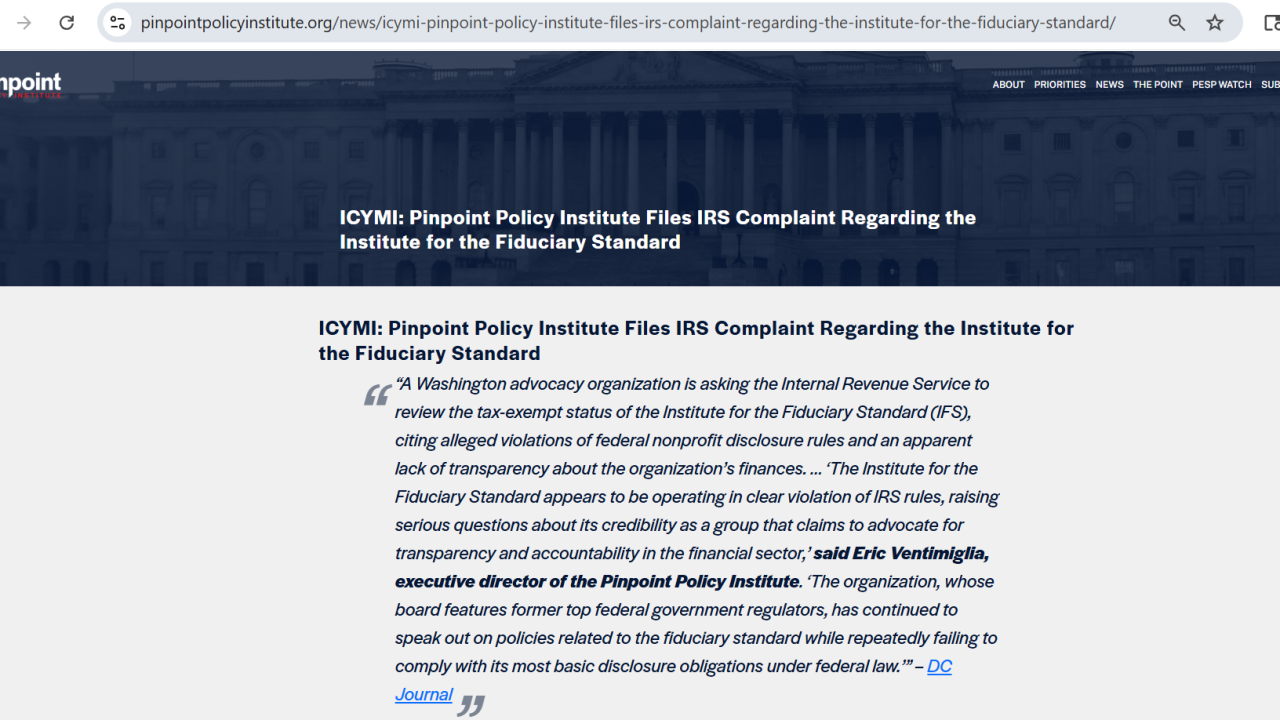A more than $6 million SEC fine against Senvest Management signals regulators are beginning to move down to the RIA level in their quest to stamp out
The Securities and Exchange Commission
"Adherence to these requirements is essential for the commission to effectively exercise its regulatory oversight and enforce the federal securities laws," said Eric Werner, the director of the SEC's Fort Worth Regional Office.
A spokesperson for Senvest, which neither admitted to nor denied the SEC's allegations, declined to comment.
Starting with the big boys
The case comes as the latest foray in the SEC's attempt to rein in advisors' use of WhatsApp, WeChat and other messaging services to talk business with colleagues and clients. Regulators have so far handed down more than
The initial enforcement rounds fell on some of the biggest names in the industry. In December 2021, for instance, regulators at the SEC and the Commodity Futures Trading Commission hammered JPMorgan with
READ MORE:
Max Mejiborsky, the vice president of compliance services at the regulatory consultant COMPLY, said it was only a matter of time before regulatory scrutiny should alight on the RIA level. As far as he knows, Mejiborksy said, Senvest is the first independent registered investment advisor to reach an SEC settlement over alleged off-channel violations.
"The SEC has certainly identified it as an industry-wide issue," Mejiborksy said. "And I think that's how it all starts. I think when we had the email enforcement cases, years ago, they started with big firms and they defined solutions as a result of those cases. And I think this will follow a similar path."
Staying on message
Of the more than
But no matter how stretched their resources, the SEC and
It's when they can't retrieve the records they were expecting to find that they'll start leveling accusations about off-channel violations.
"But these could become a sort of primary driver of examinations or the subject of some sort of a targeted sweep because they're so prevalent now," Mejiborsky said.
Allegations aplenty
Senvest is a New York-based firm with nearly $3.7 billion under management and 25 employees, according to a registration document filed with the SEC on April 3. The SEC's complaint stated the firm had a policy requiring employees to acknowledge every year that they had reviewed internal policies banning "unapproved electronic communication methods" and stating that they "that they should not use personal email, any form of text messaging, iMessage, or PIN-to-PIN messaging to transmit work-related messages."
Despite that prohibition, according to the SEC, employees used off-channel means to send thousands of messages from 2019 to 2021 to "senior officers, managing directors, employees, fund investors and other financial-industry participants." The SEC said Senvest supervisors had authority to access employees' personal devices to look for proscribed communications but chose not to exercise it.
The SEC said three senior officers and a managing director at Senvest sent off-channel messages concerning "communications concerning recommendations made or proposed to be made and advice given or proposed to be given about securities." Regulators accused the firm of violating recordkeeping and ethics provisions of the Investment Advisers Act of 1940 and failing to properly supervise employees.
Three steps to avoid SEC ire on off-channel communications
Brad Levy, the CEO of the compliance software firm Symphony, recommended three steps for firms that are worried they could find themselves in a similar situation. First, they should review their policies to make sure they're strong enough to withstand regulatory scrutiny. Levy said it's essential to revise internal prohibitions and procedures to keep pace with changes in communications technologies and regulators' priorities.
Second, they should make sure those policies are clearly communicated to employees and that employees acknowledge they understand both their obligations and prohibited actions.
Finally, Levy said, they should adopt some firm-wide system that can be used to track and store messages.
Levy said the mere act of moving to have a strong recordkeeping system in place is often enough to buy some goodwill from regulators.
"A lot of people don't like to do that because they don't want to spend money," he said. "And then, it's almost like when you start to do the work, does that mean you have a problem? But I think it's clear you need to start with, say, over five providers and put out a [request for proposals]. And then put a time on it and say, 'In 270 days, we're gonna have a physical thing implemented.'"
Should firms issue dedicated phones or insist on access to personal devices?
Levy said many firms deal with off-channel communications by insisting on the exclusive use of company-owned devices for business dealings. In the Senvest settlement, the SEC says the firm issued cell phones to its employees before the $6.5 million penalty was handed down.
"These devices automatically upload communications into Senvest's archiving system for retention," according to the settlement.
Levy said such a step isn't absolutely necessary, and that there are good reasons for opting something a little less far-reaching. For one, equipping every employee with a phone is expensive. Many advisors also object to the idea of having to carry two devices around with them everywhere.
Levy said firms can also insist that employees give them access to their personal devices. That prevents them from having to carry around two phones but also could let supervisors see photos and other private information.
Some firms take a third option and let employees know that if they want to discuss business on their personal devices, they have to agree to the use of some sort of recordkeeping system. The alternative is to stick strictly to emails and other forms of communication for work-related matters.
Levy said firms can vary their policies according to how much regulatory scrutiny individual employees are likely to come under. Those who trade frequently may need to have firm-issued phones or give supervisors access to their devices. Those with administrative or operational duties don't necessarily fall under the same requirements.
"It's probably not one-size-fits-all," Levy said.
Outside eyes to ensure compliance
In Senvest's case, there will also soon be a third-party looking over supervisors' shoulders and making sure they're living up to their obligations.
The SEC then gives Senvest 120 days to comply with recommendations. The consultant will later have to produce a one-year report gauging whether Senvest has been properly carrying out its policies and obligations.
Senvest has also told its employees that they're prohibited to do options trading in their own accounts and "that making more than 10 preclearance trades in a month may trigger increased scrutiny," according to the SEC settlement. Employees also are generally banned from trading in securities owned by the firm's clients.






